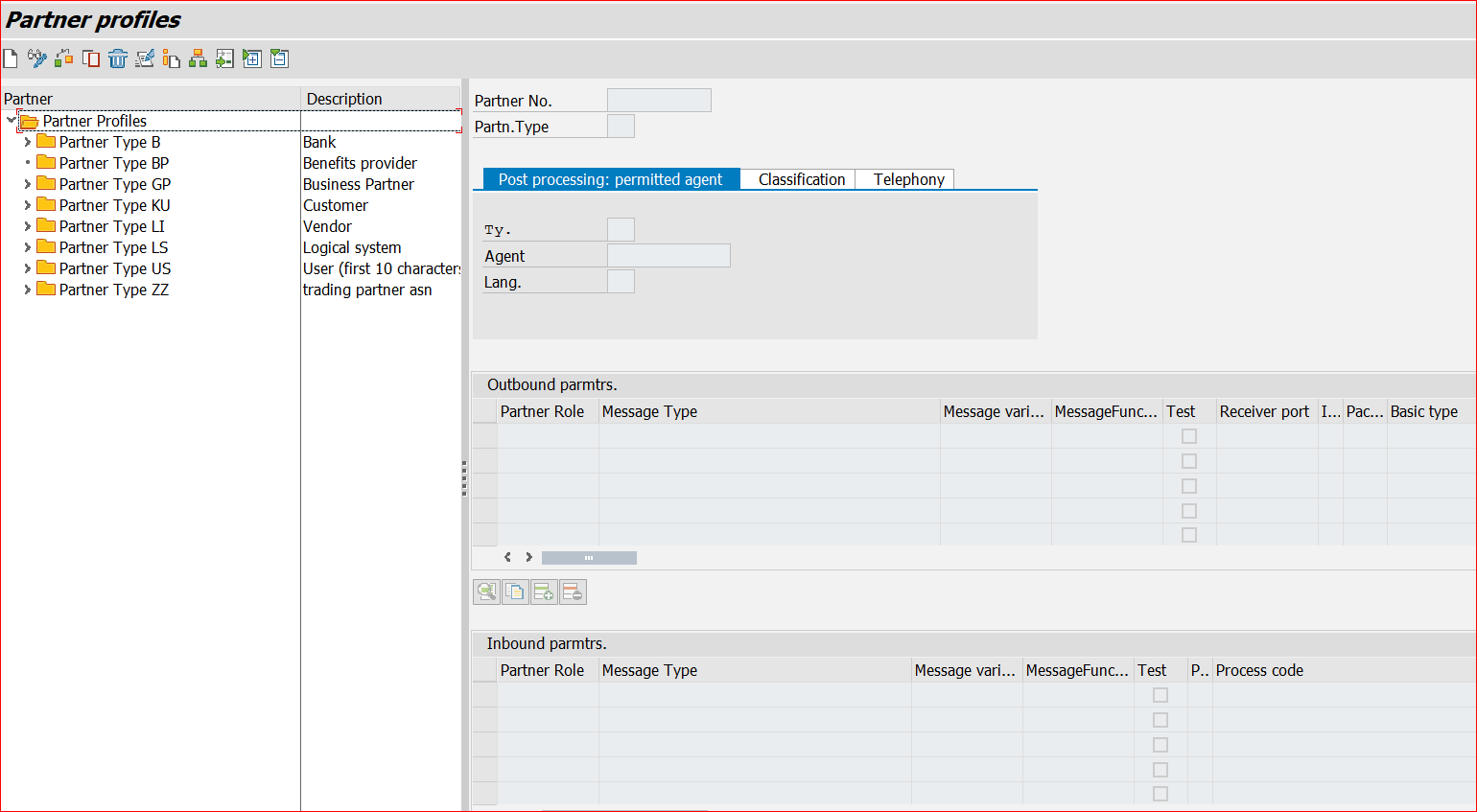Use SAP tcode to configure output message and Idoc :
1. NACE (also via SPRO IMG) - maintain output message type,application, programs, output type, transmission medium, condition tables/access, condition records...
2. WE20 (partner profile, as long as partner number/type is already created via WE21)
- also here indicates whether there is a process code to use for idoc creation or none.
- stored in table EDPP1, EDP12, EDP13
The process code contains the program that will process/create the IDOC.
Idoc Processing/creation (like upon posting or saving the SAP document) :
1. The SAP application program (application such as ME) has corresponding program that collects and get all output message types that is configured on its application. Then save all to internal table KOMT1 -> NNAST . Example of the output determination program appliction in IM - SAMMM07M - SAPLV61B .
* the function module RV_MESSAGE_GET - collects all output types.
2. Then set access sequence and its condition records will be access by the program that will determine the final content of XNAST table.
3. Then output message will link to the partner profile and its process code (function/program) during RV_MESSAGE_UPDATE. Wherein process code will be process or if none, the routine program indicated in the NACE.
4. Then ouptut message type appears in the output of the documents.
Use the following for Idoc error debugging
WE02, WE09, BD87, program RSNAST00 (issuing output, make it sure output type is send to job not immediate)
How to use BD87 to display or find the idoc for that document.
1. Enter Message type, Business Object and / or the Object key, date, or person creator. Specific much better.
To display business object type and object key
Once found, to display.
Use table NAST to look for the document created for that output message type.









No comments:
Post a Comment